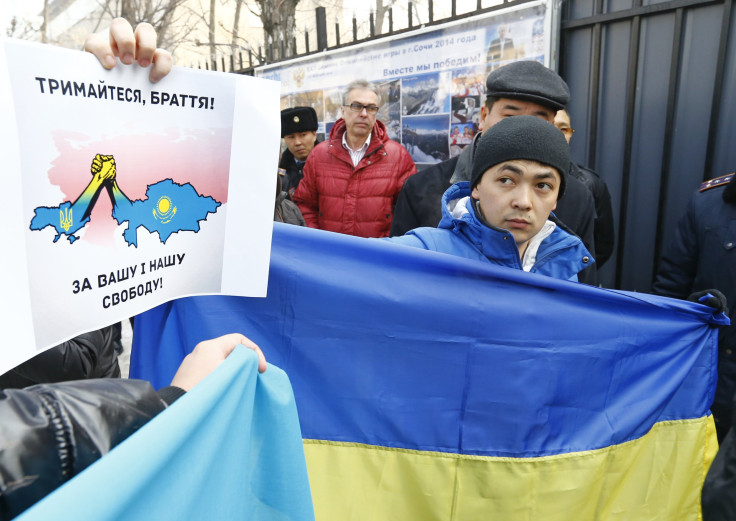Gazprom May Be The One Obstacle Putin Faces On Path To Military Action In Ukraine And Crimea

The one major obstacle standing in Russian President Vladimir Putin's way when it comes to military action in Ukraine and its autonomous region of Crimea is his country’s state-owned energy giant, Gazprom, an energy expert said Monday.
Disruptions in natural gas supplies that may last until the end of this year could cost the company $20 billion and eliminate $6 billion worth of customs duties for Russia, possibly bankrupting OAO Gazprom (MCX:GAZP), Mikhail Korchemkin, the executive director of East European Gas, told IBTimes.
Europe is dependent on Russia for approximately 30 percent of its gas supply. Half of those imports pass through Ukraine. In the event of a military showdown, Russia could divert gas to customers through other pipelines. Ukraine, which needs the energy resource -- and the revenue from transit duties -- would be hard hit in such a scenario because the country needs $25 billion to refinance its debt, according to London-based investment firm Capital Economics.
But by diverting gas, Russia would be able to fulfill only about two-thirds of its contract obligations, because of limited pipeline capacity. That means there will be less revenue for a company that makes up almost 8 percent of Russia’s GDP and a signficant percent of the state's budget revenues.
Therefore pro-European Ukrainians may look to stop the flow of gas themselves, even if it would hurt the country, because they know Putin believes “Gazprom is more valuable than Crimea,” Korchemkin said. This is why he predicts that Putin will de-escalate tensions.
In fact, the timing is ripe for such a scenario to play out because as winter transitions to spring, demand for gas is significantly lower.
“If you look at the history, Gazprom has always started the gas wars in winter, when people appreciate Russian gas,” Korchemkin said, referring to previous confrontations between Russia and European nations about natural gas prices. Korchemkin added that if you turn off several pipelines in the summer, no one in Europe will notice.
If Russia invades Ukraine, Gazprom could face sanctions, making it difficult for the state-owned company to get loans or foreign investments for projects like the South Stream pipeline, which would begin in Russia and run directly to Bulgaria through the Black Sea. The leverage that Russia had in using natural gas as a political tool has faded, at least at this time.
Natural gas prices in Europe have increased around 10 percent since Friday, signs that tensions in the Black Sea region are affecting the gas market heavily.

© Copyright IBTimes 2024. All rights reserved.






















